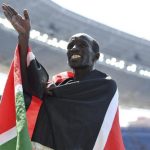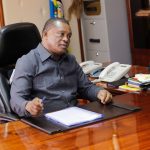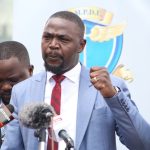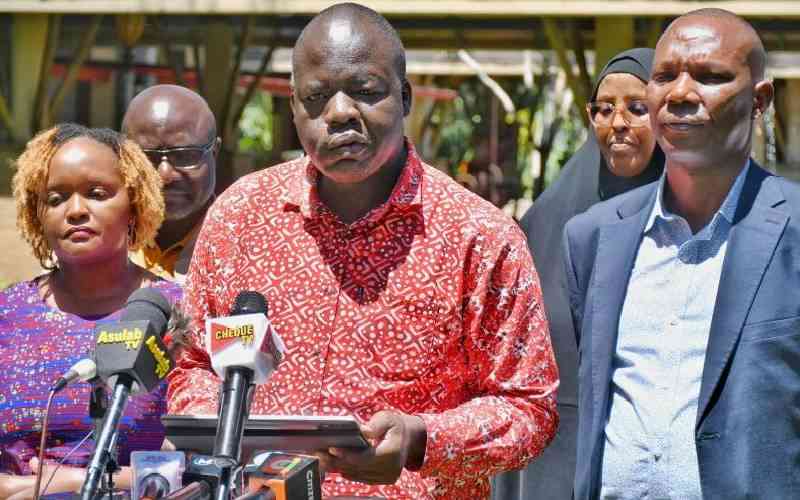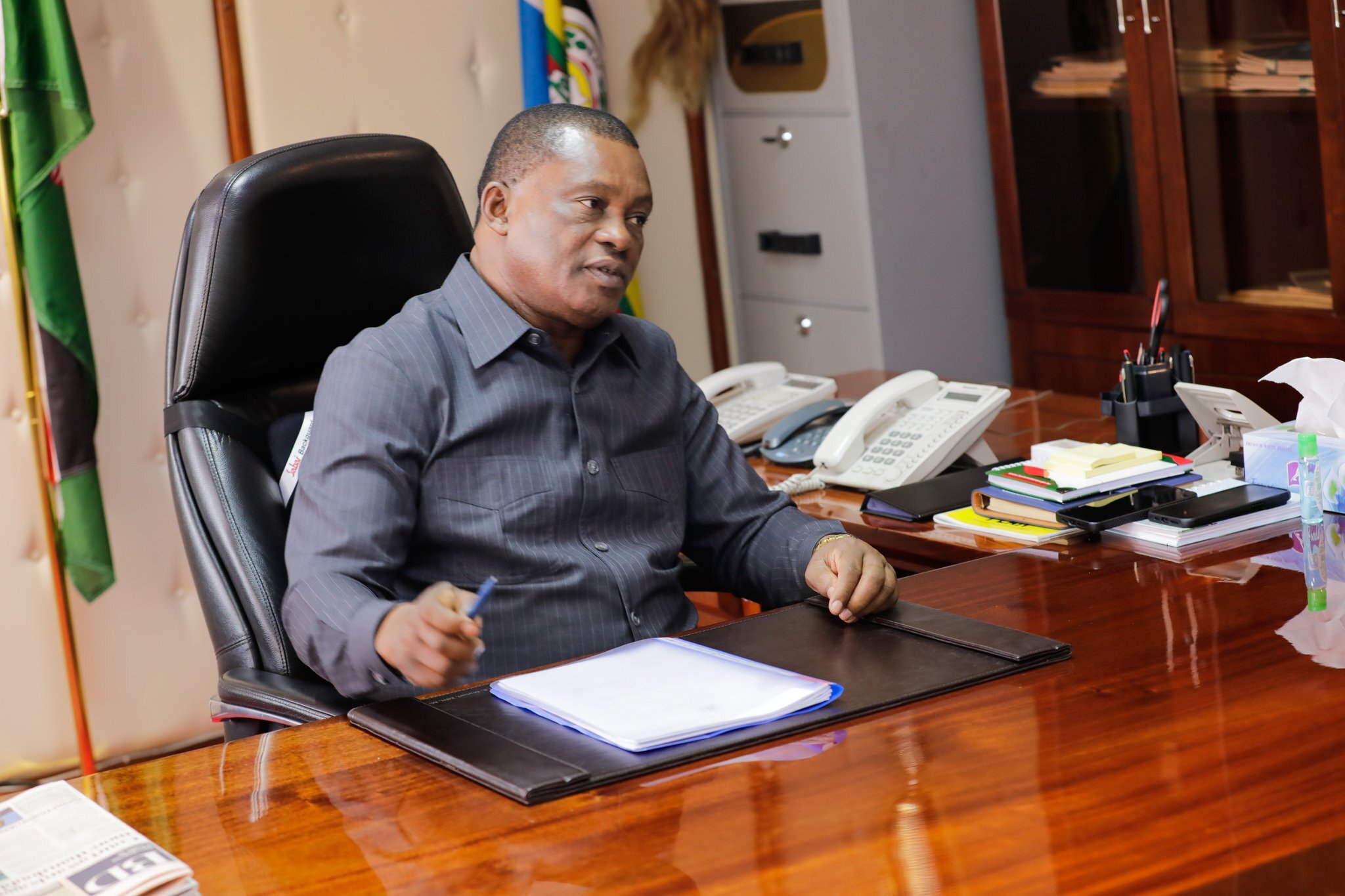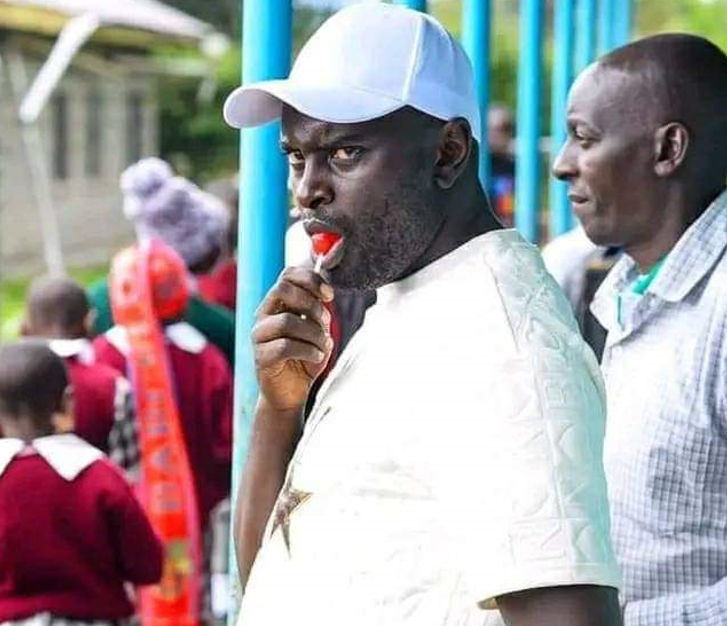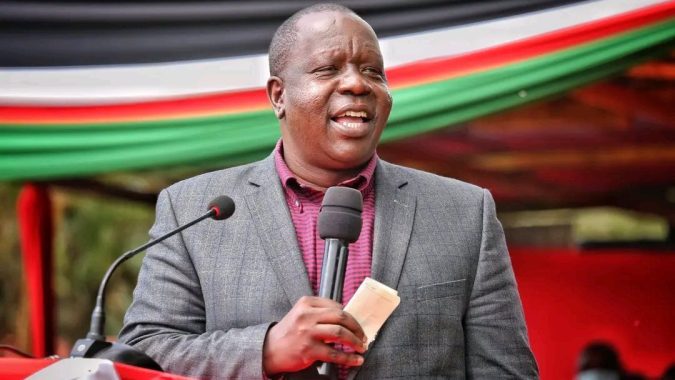The Chair IEBC selection panel Dr Nelson Makanda joins his colleagues in addressing the press on 11/2/25 in Naivasha on the selection of new IEBC commissioners. The panel has assured the country that there will be a new electoral body in office by the end of April 2025.[Antony Gitonga/Standard]
The process of constituting a substantive Independent and Electoral Boundaries Commission (IEBC) is underway and the pressure to deliver a credible entity to referee the next General Election is mounting.
A full in-tray awaits the IEBC, which could tentatively be in place by May. Among the tasks its new commissioners will be expected to undertake is a slew of by-elections for constituencies and wards without representation for nearly a year.
At the same time, IEBC is supposed to prepare for a credible 2027 General Election. Concerns have been raised over the delay to reconstitute IEBC, which has contributed to stalling crucial activities like boundary delimitation.
Article 89(2) of the Constitution provides that the IEBC should review names and boundaries of constituencies at intervals of not less than eight years, and not more than 12 years, with the last review carried out in March 2012.
March 2024 was the desired deadline for the exercise, which has long elapsed even as questions emerge whether this exercise will still be undertaken amid strained timelines.
And now, the process to put in place IEBC is gaining momentum, with IEBC panel having received 1,848 applications to fill only eight positions for chairperson and commissioners.
IEBC panel chairperson Nelson Makanda said the panel has commenced verification and will be issuing the long list, comprising all names of applicants, in accordance with the IEBC Act.
“In the next one week or so, we are going to be looking at the applicants to be able to mine the data and verify, some people are overzealous and sent a soft copy and hard copy as well as on registered mail. We want to look at those 1,848 applications and rationalise them,” he said.
Once rationalising is completed, Makanda said they will develop a long list to be published in the Kenya gazette and two newspapers of national circulation, as the law provides.
He admitted that the shortlist, which will then follow, will be a difficult task, as they compile the number to be interviewed, about 70 or so names with the panel expected to agree on how many will be interviewed for each position.
The panel will then publish those shortlisted and ask both Kenyans and institutions with mandate to investigate to participate in this process.
“Around mid-March, we will start the interviews which will run for about two weeks because the numbers are huge and we want to grant everyone a fair hearing. By early April, we should have completed the interviews then give the panel about a week or so to write the exit report and agree on suitable candidates from the interviews,” said Makanda.
He said they expect to hand over to President William Ruto, their exit report and names of potential candidates for the positions by at least April 27, who will in turn forward names to Parliament for vetting.
In picking candidates, Makanda described it as a difficult task but they will put a lot of emphasis on competence, character and courage.
Stay informed. Subscribe to our newsletter
“We will try as much as possible to discern and determine the capacity of these people to withstand pressure. You may be competent, be a good person in terms of your character but what is your tenacity, do you have the capacity to withstand pressure? Pressure will come in from politicians and interested parties to stand as a fair arbiter, say no when you need to and yes when you need to… that will be the test of the panel,” he explained.
Once in place, expectations are that the IEBC will conduct by-elections at a time there have been massive political shifts away from the scenario in 2022 elections.
Already, the President is running a broad based government, which has seen incorporation of those who voted against the Kenya Kwanza Government in the last elections.
At least 12 areas require by-elections for the National Assembly, other vacancies arose from deaths of Members of County Assemblies (MCAs) while others resulted from appointment to Cabinet.
At the same time, National Assembly Speaker Moses Wetang’ula said boundary delimitation process may be the biggest casualty of the delayed reconstitution of the electoral agency.
“The delay in the reconstitution of IEBC stalled crucial activities, including boundary delimitation, which is vital for the country’s electoral system, as well as the timely conduct of by-elections in constituencies and wards that have experienced vacancies,” said Wetang’ula.
“It is also true the delay in the reconstitution of IEBC, we have lost a lot of time because of being embroiled in court. We do not know whether there will be possibility in the boundaries delimitation once they the new commissioners assume office,” he added.
Wetang’ula, however pointed that demographic-based adjustments could allow the IEBC to redraw boundaries by redistributing populations within existing constituencies.


